#prince wilhelm of prussia
Text
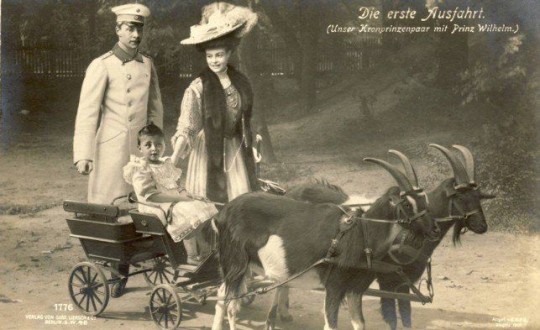
Crown Prince Wilhelm of Prussia with his wife Crown Princess Cecilie and their eldest son, Prince Wilhelm of Prussia.
#crown prince wilhelm of prussia#crown princess cecilie of prussia#prince wilhelm of prussia#german imperial family#prussian royal family#german history#house of hohenzollern
20 notes
·
View notes
Photo
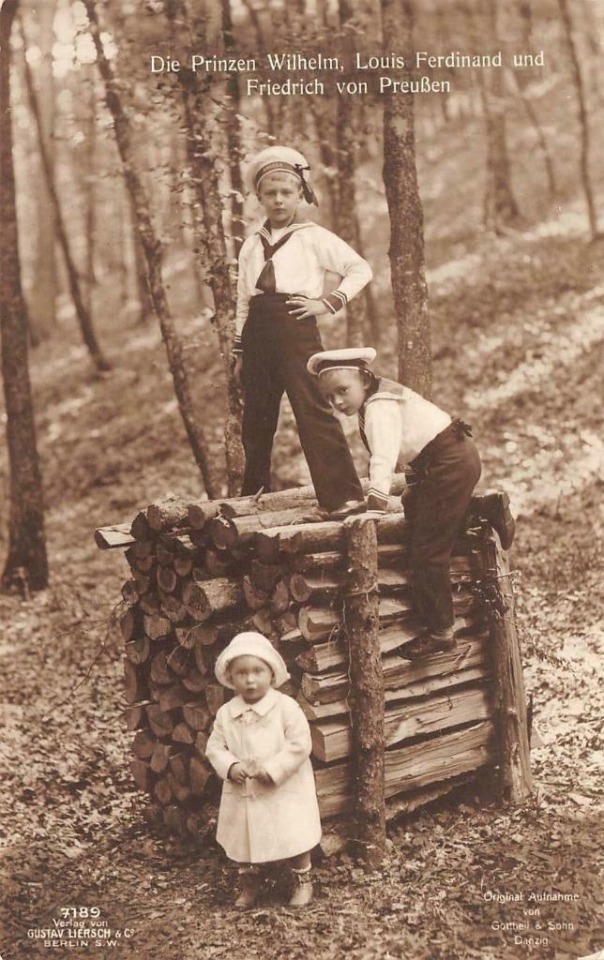
#Prince Wilhelm of Prussia#Prince Louis Ferdinand of Prussia#Prince Friedrich of Prussia#1910s#hohenzollern#prussian royal family
7 notes
·
View notes
Text
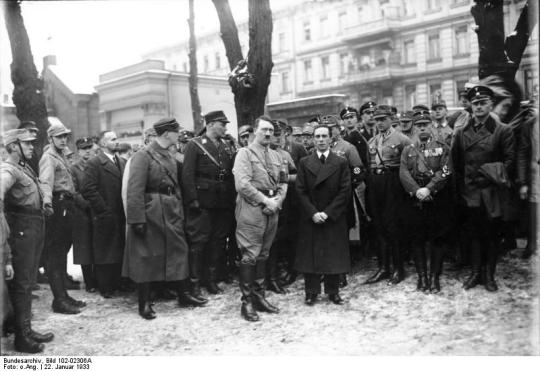
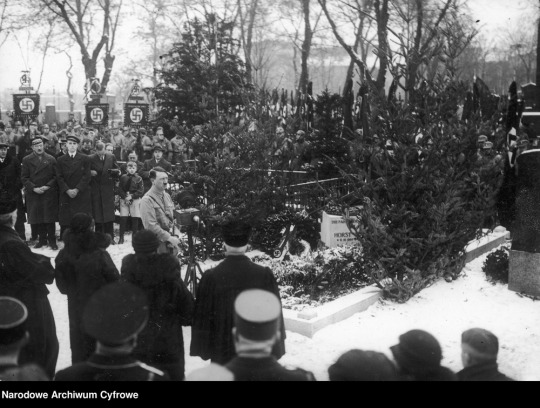
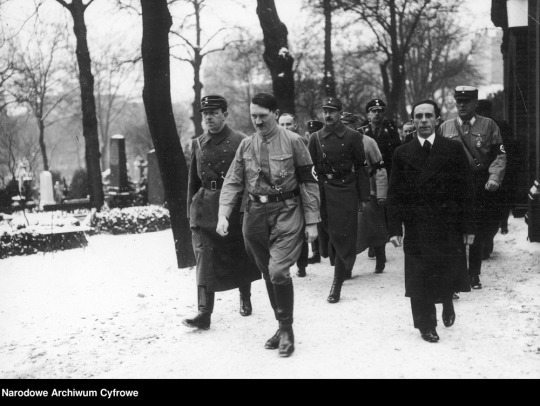
Adolf Hitler in Berlin at the ceremony for Horst Wessel in the Nikolaifriedhof with Joseph Goebbels and Prince Auwi
#reichblr#ah#joseph goebbels#prince auwi#Prince August Wilhelm Heinrich Günther Viktor of Prussia#horst wessel
23 notes
·
View notes
Text
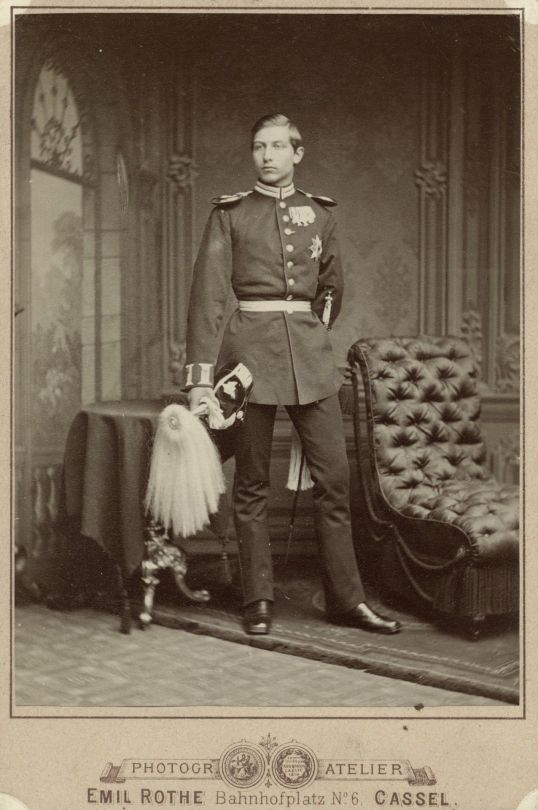
Young Prince Wilhelm, future Emperor of Germany and King of Prussia (AKA Wilhelm II).
#all i need to say is smash#kaiser wilhelm#kaiser wilhelm II#kaiser#prince wilhelm#willy#vintage photo#young#old photos#old royal#old royals#hoenzollern#house of hoenzollern#king of prussia#emperor of germany#prince#king#emperor
16 notes
·
View notes
Text
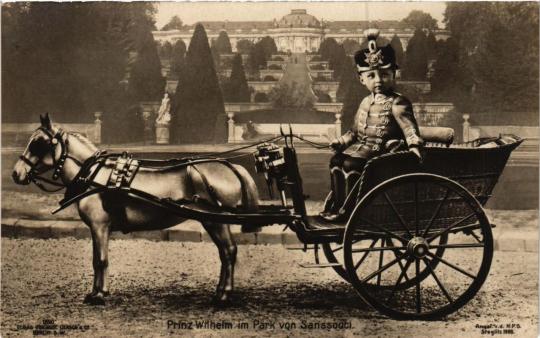
Prince Wilhelm Friedrich Franz Joseph Christian Olaf of Prussia
German vintage postcard
#tarjeta#prince wilhelm friedrich franz joseph christian olaf#postkaart#german#sepia#prussia#wilhelm#historic#franz#photo#olaf#postal#briefkaart#friedrich#photography#prince#christian#vintage#ephemera#ansichtskarte#old#postcard#postkarte#joseph#carte postale
4 notes
·
View notes
Note
Fav sibling dynamics in Vicky and Fritz’s kids? I low key support Willy and Charlotte just because she relied on him for support a lot.
I like them too, sucks that their relationship deteriorated. I like Henry and Willy too… so I’m conflicted (😔), I’m gonna go with the latter since they did continue to communicate until Henry’s death
#imperial germany#german empire#german monarchy#monarchy#wilhelm ii#kaiser wilhelm ii#victoria princess royal#empress frederich#emperor frederick iii#kaiser frederick iii#princess charlotte of prussia#prince heinrich of prussia#prince henry#prussian royal family#prussian#ask
3 notes
·
View notes
Text
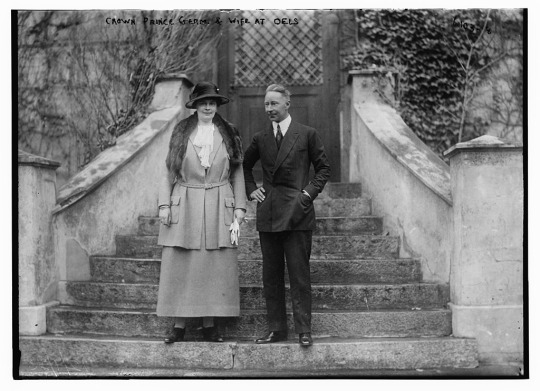
A rare photo of the exiled Crown Prince Wilhelm and Crown Princess Cecilie of Prussia in the early 1920s.
14 notes
·
View notes
Text
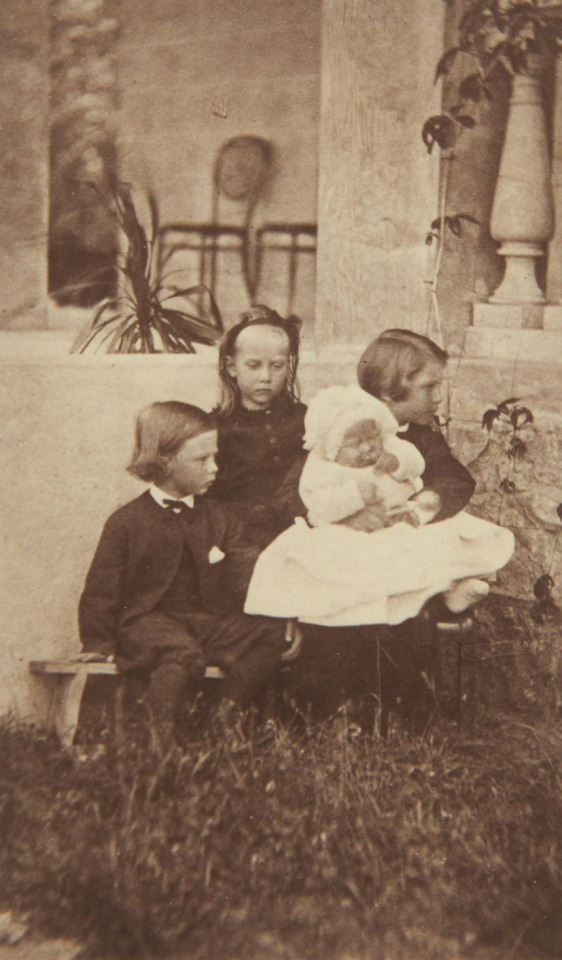
Four eldest children (— Sigismund) of Crown prince Fredrick of Germany and Victoria Princess Royal in 1864
From left to right: Henry, Charlotte, Viktoria, Wilhelm
#prussia#kaiser wilhelm ii#princess charlotte of prussia#prince Henry of prussia#prince heinrich of prussia#princess viktoria of Prussia
4 notes
·
View notes
Text
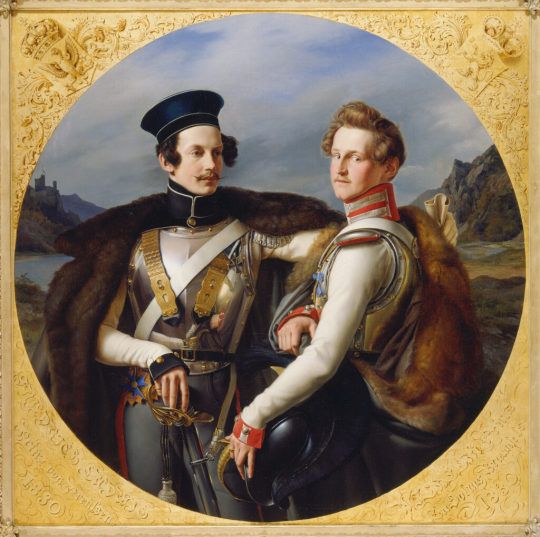
1830 Friedrich Wilhelm von Schadow - Prince Frederick William Louis of Prussia and Prince Frederick William Henry Casimir of Solms-Braunfels
(Museum Kunstpalast, Düsseldorf)
244 notes
·
View notes
Text
Since we are officially half-way through the first round, here are some statistics for you:
Proportionally, the country that has been the most victorious is Russia, sitting at a 86% success rate (Prince Metternich ruined their perfect 100%)
The least victorious country so far is England, with a measly 38% success rate.
Five of the total 13 fictional characters have been eliminated.
The countries that have been eliminated are: Denmark, Sweden, Sardinia and the Papal States. They each had one nominee who lost in the first round.
Friedrich Wilhelm III of Prussia is the only crowned head of state to successfully make it through the first round on the left side of the bracket. Which included Napoleon I.
The largest margin of victory goes to Ida St. Elme, who absolutely trounced George Canning. The smallest margin goes to Richard Sharpe, who squeaked out a win with (what by my calculation was) two votes.
38 notes
·
View notes
Text
Rambling about Hass in Elisabeth for a REALLY long time. TL;DR - yeah, it is necessary as a song...
Because of the costumes and staging people often just see it as "the antisemitism song", which it is, strongly, but I think sometimes the wider context presented therein is ignored. Really, the song shows how antisemitism and hatred are fuelling and entangled with other movements!!
The nationalists in that song come from various groups and social classes, and identify as their enemies:
Socialists
Pacifists
Jewish writers
Jewish women
"Those who are not like us"
Crown prince Rudolf (because of his - historically strong - friendships and other positive associations with Jews)
The Habsburgs as a whole
Elisabeth and her Heinrich Heine (= a Jewish poet) monument project (which also attracted such strong criticism from German nationalists [Austrian Germans who were nationalists, not "Germans" in the modern sense] historically)
Hungary
The "barons" - so the nobility
The "slavic state"
The ongoing "betrayal of the people"
And to contrast, they identify as good:
Strength ("the strong wins, the weak fails", and also "strong leaders") and "purity"
"Unity"
Glory/splendour ("pracht")
Christian values
"Unified Germany", an alliance with Prussia and even an Anschluss (the joining of Austria and other "ethnically German" [so-called] lands to the German Reich. Hmm does anyone remember who also strove for and eventually implemented this... /s)
The conservative Wilhelm II as emperor (again, they want to join Austria into the German Reich)
So like. There is a glorification of all things "German" and of conservative values (religion) and reactionary power politics ("weakness" was and is by similar groups now considered to be a major flaw of liberalism and a liberal world order - in the song, pacifism and socialism are also connected to it), as exemplified by Wilhelm II's Germany specifically. To contrast, racial enemies ("non-Germans") threatening "racial purity" must be eliminated, with violence if necessary. And the Habsburg monarchy, being a multinational empire, is described as immoral and weak because of it being multinational (and the position of Slavs and Hungarians in politics and imperial administration).
The themes of "betraying the people" (Volksverrat) are especially interesting because the enemies of the nationalists as listed in the song, Jewish women, pacifists and socialists, were also the people blamed for German defeat in WW1 (the "stab in the back" at the home front myth). It's overall 19th and 20th century anti-establishment fascist imagery.
Ajdkkf I don't think I'm clearly making my argument but the song's key functions are:
To dispel the myth of the late 19th century being "the good old days", the glory days of Austria before the world wars somehow magically came to happen and ruined it. In fact, the songs shows that the developments leading to the world wars stem from politics and mass movements of hatred that developed alongside and gave power to & drew power from nationalism in the 19th century
To show the audience exactly what Rudolf is talking about in "Die Schatten werden Länger (reprise)". What is the "evil that is developing"? It's not Rudolf's personal petty wish for more power, or his angst about not being emperor yet, or some generic amorphous disdain for how FJ is reigning; it's not the lack of Hungarian independence either, for god's sake. I will die on this hill, if you cut Hass or replace it with conspiracy or whatever you can cut Rudolf as well, Elisabeth as a show is (in my opinion) a good portrayal of him precisely because it depicts him as a political thinker (in contrast to many depictions and post-Mayerling accounts which diminish that and just talk about Mayerling and his "immorality" - a talking point devised by the nationalists and antisemitists who hated him lol, liberal politics were connected to lack of morality) and someone who, unlike most of his contemporaries, saw that antisemitism, emphasis on "power" and realist power politics, exclusionary/hateful rhetoric and excess nationalism would lead to ruin. AND Hass also shows that he was hated by the German nationalists for this! As was his mother, for her sympathy to Heine...
To connect genuine popular dissatisfaction (from Milch - Hass is a reprise of Milch in terms of rhythm and the call-and-response structure where Lucheni talks to the crowd) with inequality, the lack of democracy and the excesses of royalty... to the rise and presentation of fascism as a "solution"
To show that 19th century nationalism was, in many ways, exclusionary, antisemitic, racist and "war-mongering", and that this rhetoric is old - not somehow magically appearing for WW2 and then disappearing again - and will time and again rise... and that it's everyone's responsibility to recognise it for what it is when it happens, if we are to have a reasonable, decent world to live in.
The framing of Hass sometimes confuses people I will never recover from that one post cancelling Elisabeth das musical for being antisemitic because Hass exists ajiddfkdllfgl what's next, it's pro-suicide and homophobic because a character technically dies from being gay? but to me it's rather clear that it's unsympathetic lol, with the whole doomsday atmosphere (no music, just footsteps/marching and drums and screaming, it's meant to be threatening), the way the ensemble harshly criticises the most sympathetically portrayed characters we have seen so far (Elisabeth and Rudolf) for things that seem petty and harmless (having Jewish friends), and the extremely direct comparison drawn to N*zism (to indicate what such a movement would develop to) in many stagings. I don't know how to say this but somehow I've always assumed that "H*tler and n*zism = evil" is EXTREMELY common knowledge and it mystifies me when people like. Think it should have been stated more clearly in the show. Like, the show is working off the assumption that you know what it is and that it's bad because of the millions and millions of people they killed............. this is EXTREMELY common knowledge in Europe, not least in Germany and Austria lol.
So um yeah akwkldlf, sorry for the ramble, I just feel like the song can be poorly understood and criticised on shaky ground sometimes. I mean, I am not Jewish and not equipped to talk about whether it's triggering or traumatising to watch especially with lived or family experience of antisemitic violence... But I think for non-Jewish people there is a huge responsibility to be aware and vigilant of antisemitism, historically and in the present, and sometimes it needs to be hammered home for people to understand...
By that last point I also somewhat mean... I think you don't "get" to be triggered by it if you're not Jewish but perhaps otherwise affected by politics of hatred. Of course I'm not emotions police lol, but many Jewish people have intergenerational trauma AND have to live with extremely similar antisemitic rhetoric and culture to this day, so there I understand criticisms - and there is also a discussion to be had about how and to what extent it is ok to use and display Jewish suffering as a device to educate non-Jewish people.
But anyway, to my original point. This is something I've seen people say and I just... if you're queer and it makes you uncomfortable to see Hass because modern n*zis hate you and it's traumatic, I mean, it's valid to feel uncomfortable and you can choose not to watch it personally to avoid being triggered, but you don't get to call for it to be erased from the show for "problematic content" or for "escapism" or to make you feel better. It is there because the destruction of the 19th century world, and Rudolf's and Elisabeth's suffering, is intrinsically tied to the rise of such hateful politics and without that being shown there is no show. You don't get to make it something it's not, this show is not ONLY an epic gothic romance with imaginary boyfriend, it's a commentary on past, present and future politics in that it shows the dangers of conservatism, antisemitism, racism and illiberalism. Calling for or supporting censorship, or state emphasis on militarism/"destroying the enemy", or advocating hatred, violence or oppression against any group based on ethnicity, religion, race, political views, etc. are all political stances held by and propagated by various people today in various political contexts. And you are not immune to antisemitism or reactionary nationalism if you're queer or whatever, so you have the constant responsibility to think critically about your worldview and your politics!!
23 notes
·
View notes
Text

Crown Prince Wilhelm of Prussia with his sister Victoria Louise, Duchess of Brunswick and her husband Ernest August, Duke of Brunswick
#crown prince wilhelm of prussia#princess victoria louise of germany#ernest august duke of brunswick#german imperial family#prussian royal family#hanoverian royal family#house of hohenzollern#house of hanover
8 notes
·
View notes
Photo

During his Majesty's brief sojourn at Friedrichshof he and the German Emperor were the guests of Princess Frederick Charles of Hesse-Cassel, the youngest daughter of the late Empress Frederick. Her Royal Highness, who is the Kaiser's favourite sister, is a gentle, sweet-looking woman, who lives up to the Hohenzollern ideal by being the mother of six sturdy sons, who include two sets of twins. Princess Margaret of Prussia, as she was, of course, always called as a girl, played in her mother's life much the same part as Princess Beatrice played in that of our late Sovereign. It was said that on several occasions, she refused brilliant offers of marriage rather than leave her widowed mother, and her betrothal to the Prince whose wife she now is was the outcome of quite a romance. Prince Frederick Charles is a clever studious officer; he is trebly connected with our Royal Family, for in addition to being King Edward's nephew by marriage, he first-cousin to Queen Alexandra and to the Duchess of Connaught. The Empress Frederick left her youngest daughter the beautiful palace created by herself, and accordingly Prince and Princess Frederick Charles spend the greater portion of each year at Friedrichshof, though they also own a delightful suite of rooms in the famous Schloss Rupenheim.
The Sketch Aug 22, 1906
#Princess Margaret of Prussia#1900s#prussian royal family#Kaiser Wilhelm II#Prince Friedrich Charles of Hesse-Cassel#magazine article
15 notes
·
View notes
Text
Hermann Goring
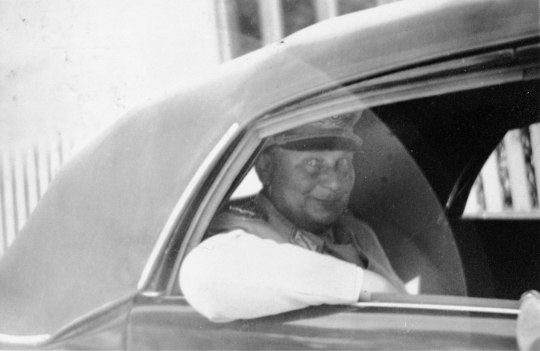
This is Hermann Goring, the Reich minister for Aviation, timeline:
1893: He was born in Rosenheim, 12 January.
1895: Albert, his younger brother, was born.
1904: He was sent to boarding school, where the food was poor and the discipline was harsh.
1909: He was sent to a military academy at Berlin Lichterfelde, from which he graduated with distinction.
1912: He joined the Prince Wilhelm Regiment (112th Infantry) of the Prussian army in 1912.
1913: His father died.
1913: He was admitted to officers' school.
1914: The First World War began.
1914: He served with his infantry regiment in the region of Mülhausen, a garrison town just a mile from the French border.
1915: He passed to the newly formed Luftstreitkräfte, the air force of the German Empire.
1915: He and his friend Loerzer were assigned as a team to FFA 25 in the Crown Prince's Fifth Army. They flew reconnaissance and bombing missions.
1915: He received the Iron Cross first class.
1918: When Manfred Von Richthofen, the legendary Red Baron, died Goring succeeded him as his successor.
1918: Highly decorated, he was also awarded the medal for valor Pour le Mérite, the highest German military decoration at the time.
1918: The First World War ended.
1920: He met his first wife, Carin von Kantzow.
1922: Göring went to Munich to study political science at university.
1922: He met Hitler and he joined the Nazi Party.
1923: He was given command of the Sturmabteilung (SA) as Oberster SA-Führer
1923: He married Carin.
1923: He take part in the failed Munich Putsch, and he was wounded in the groin.
1924: He and his wife visited Rome, passing through Florence and Siena. Göring met Mussolini.
1927: Thanks to a general amnesty, he and his wife were able to repatriate.
1928: He was elected deputy to the Reichstag.
1931: His wife died.
1931: He was sent on a mission to the Vatican, where he met Pope Pius XI.
1932: He was elected president of the Reichstag and from that position supported Hitler's bid for chancellor.
1933: He was one of the main actors in the Reichstag fire, used by the Nazis to eliminate any opposition.
1933: He was appointed Minister-President of the Free State of Prussia.
1933: He created the Gestapo.
1933: Adolf Hitler was appointed Reich Chancellor.
1933: He was appointed minister for aviation.
1933: He was appointed General der Infanterie by President von Hindenburg.
1933: He built his home called Carinhall in honor of his first wife.
1934: He granted control of the Gestapo to the SS.
1934: He was one of the main instigators of the Night of the Long Knives together with Himmler.
1934: He was appointed Reich Minister for Forestry.
1935: He married his second wife Emmy Sonnemann.
1935: He founded the Luftwaffe.
1936: He was appointed Reich Plenipotentiary for the Four-Year Plan.
1936: He also became responsible for the plan to confiscate the assets of German Jews, which was supposed to finance the rearmament of Germany.
1938: His only child, Edda, was born.
1938: With the help of Himmler's Gestapo, he plotted first against von Blomberg and then with his successor, von Fritsch, causing them both to fall
1938: He played an important role in the Anschluss, the union between the Third Reich and Austria.
1939: He created the Reich Central Office for Jewish Emigration in Berlin, with the task of promoting the departure of Jews from all German territories, and placed it under the direction of Heydrich.
1939: Hitler designates him as his successor.
1939: The Second World War began.
1940: Göring was given a renewed mandate to direct the "Four Year Plan" for the next four years, which made him responsible for the war economy.
1940: By a decree on 19 July , Hitler promoted Göring to the rank of Reichsmarschall des Grossdeutschen Reiches (Reich Marshal of the Greater German Reich), a special rank which made him senior to all other army and Luftwaffe field marshals.
1940: He gave directives for the plunder of the occupied territories, mainly France.
1941: It was Göring who gave, on Hitler's behalf, the order to prepare a "final solution to the Jewish problem" to Reinhard Heydrich.
1945: He was arrested by the Allies.
1946: He was tried at the Nuremberg trials.
1946: He committed suicide to avoid execution.
Sources:
Wikipedia: Hermann Goring
Military Wiki: Hermann Goring
❗❗I DON'T SUPPORT NAZISM, FASCISM OR ZIONISM IN ANY WAY, THIS IS AN EDUCATIONAL POST❗❗
41 notes
·
View notes
Text

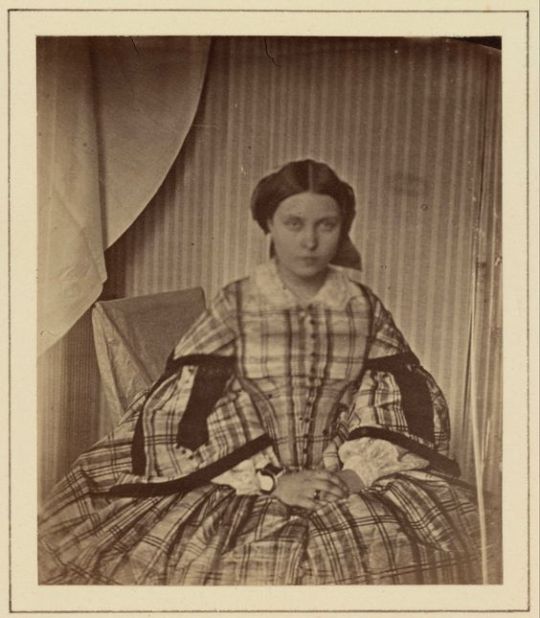
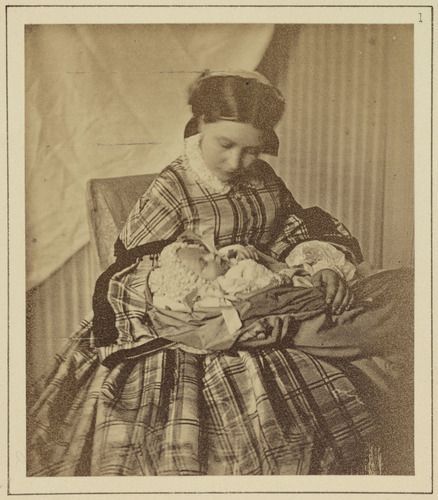
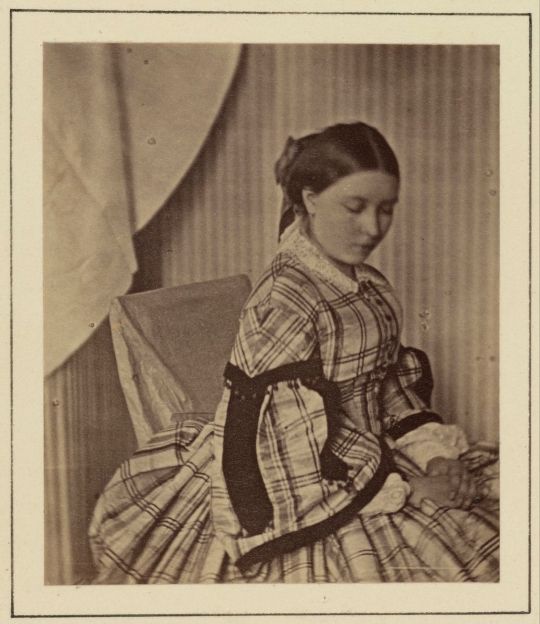
Victoria, Princess Frederick William of Prussia, March 1859
Victoria was the eldest daughter of Queen Victoria of Great Britain and Prince Albert of Saxe-Coburg and Gotha. She is pictured here with her first child, future Emperor Wilhelm II, agd. about two months.
#victoria princess royal#victoria adelaide mary louisa#wilhelm ii#old royals#prussian royal family#prussian history#prussian royalty#english royal family#british royal family#british royalty#english royalty#english history#british history#old photo#vintage photograph#victorian photography#victorian photo#antique photo#antique photograph#1850s#1859#e
15 notes
·
View notes
Text

Prince Wilhelm Friedrich Franz Joseph Christian Olaf of Prussia
German vintage postcard
#tarjeta#prince wilhelm friedrich franz joseph christian olaf#postkaart#german#sepia#prussia#wilhelm#historic#franz#photo#olaf#postal#briefkaart#friedrich#photography#prince#christian#vintage#ephemera#ansichtskarte#old#postcard#postkarte#joseph#carte postale
5 notes
·
View notes